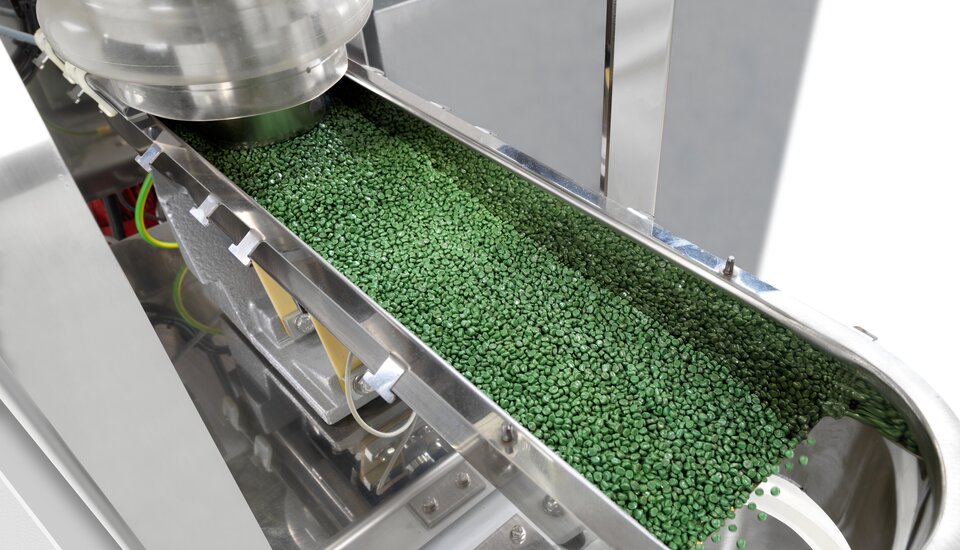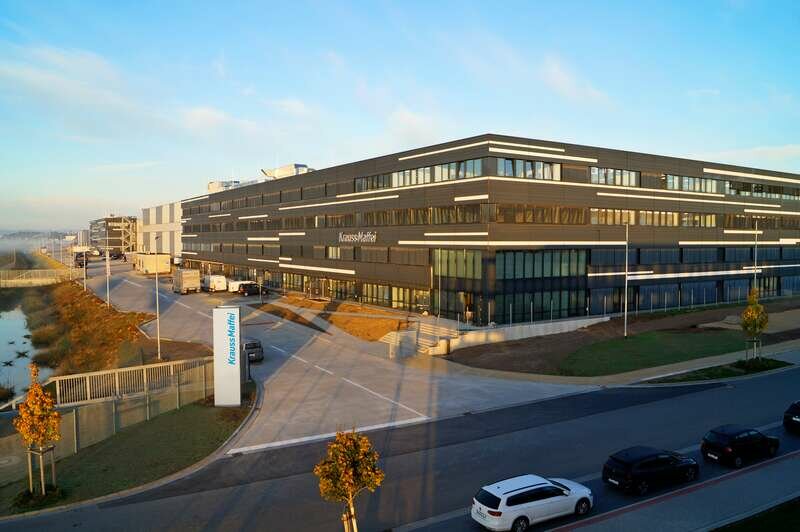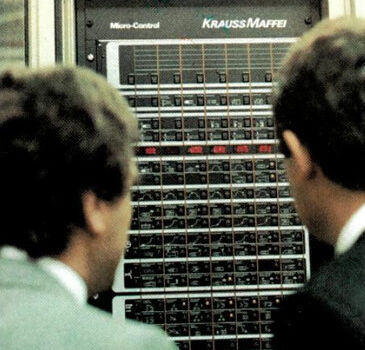
Durabilité
In 100 years from now, there will be hardly any fossil-based plastics
| Andreas Weseler
Bio-pioneer Tecnaro doubles its production capacity
Bioplastics are gaining increasing ground! Tecnaro – a pioneer in the field of petrochemical substitutes – has been conducting extensive research and development work ever since 1998 to boost the use of bioplastics. The biopolymer specialist has recently purchased a KraussMaffei Berstorff compounding line to expand its production capacity even further.
"We started with second-hand machines, one of which was originally delivered by KraussMaffei Berstorff. This is one of the reasons why we opted again for a compounding line from Hannover," says Jürgen Pfitzer, Chief Executive Officer of Tecnaro GmbH in Ilsfeld-Auenstein. TSince its foundation in 1998, the company has been committed to the production of biocompounds. During the past twenty years, Tecnaro has been strongly committed to the production of bio-compounds – a quite exotic subject at the beginning – and is now reaping the fruits of its intensive efforts. Today, the biopolymer specialist is in a position to offer a wide portfolio of over 3500 material formulations and hundreds of series products to its customers around the globe. Tecnaro’s founders Helmut Nägele and Jürgen Pfitzer are deeply convinced that their biopolymer compounds will be the "new plastics" and that there will be hardly any fossil-based plastics in 100 year from now.

Helmut Nägelec (l.) und Jürgen Pfitzer,
Chief Executive Officers of Tecnaro GmbH, produce future-proof bio-based plastics on the new ZE Basic twin-screw extruder
A wide variety of applications
Tecnaro materials are used for a wide variety of applications – starting from PC housings, watch cases, coffee capsules, food boxes, shoes, eyeglasses, coat hangers or headphones up to highly stressed flour mills. Cooking spoons made from bio-thermoplastics that do not even soften in boiling chip fat furnish ample proof of the broad performance range of the frequently customized bio-compounds supplied by Tecnaro.
Product portfolio is subdivided into three material groups
The lignin-based compounds referred to as Arboform are used for loudspeakers, musical instruments, toys, design objects or urns, for instance. Lignin is a resinous binding substance in the cellular microstructure of wood. Today, about 50 million metric tons of lignin per year are produced as by-products in the cellulose industry – and still mainly end up in incineration plants. The optionally bio-degradable raw materials of the Arboblend series – based on different formulation-specific biopolymers – are used for a wide product range as well: packagings, office supplies, household items, film and sheets as well as for other semi-finished products, to name but a few examples. There is also a great demand for the third Tecnaro product line called Arbofill. Arbofill compounds made from renewable raw materials and provided with natural fillers are used in the production of household items, packagings, technical profiles and chairs. These compounds are ideal for injection moulding processes.

ZE Basic twin-screw extruder
Is in addition to lignin-based products well suited for the production of compounds from natural materials.
The core of Tecnaro’s new compounding line is a ZE Basic 62 twin-screw extruder rated for a maximum output of 800 kg/h. This line will allow the 30-employee company to double its production capacity. "The possible scale-up of our formulations for the production of larger quantities of specific compounds on the new extruder is of decisive importance to us," says Jürgen Pfitzer. The ZE Basic is the ideal solution for the wide Tecnaro product portfolio. The twin-screw extruders of the ZE Basic series are extremely versatile and suitable for about 80 % of all plasticizing, filling and reinforcing applications without requiring any major equipment modification.















